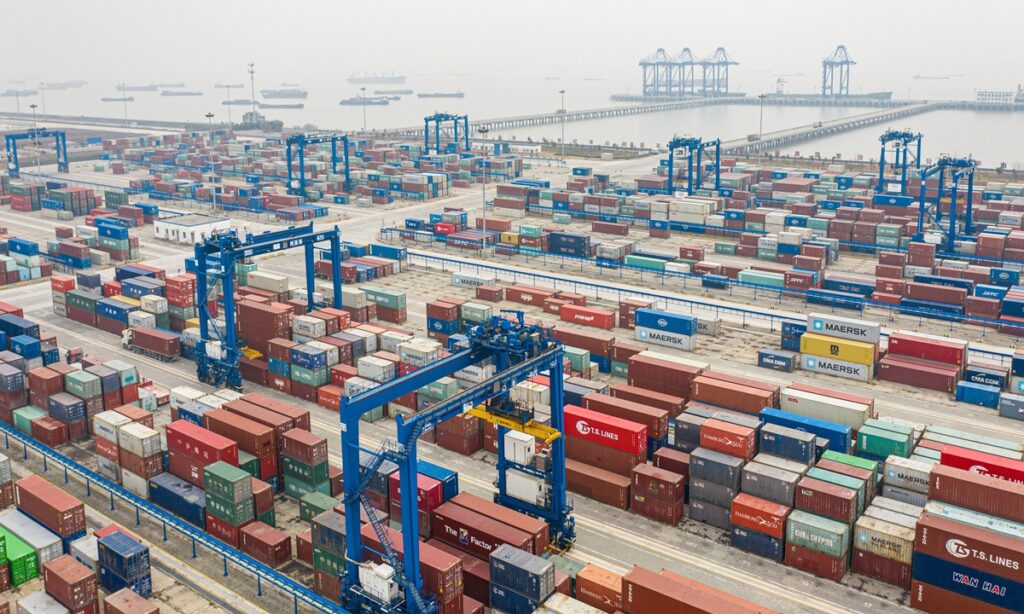CSU regional group leader Alexander Dobrindt asked German Chancellor Olaf Scholz to “stop the Chinese entry as soon as possible,” German newspaper Welt am Sonntag reported on Sunday.
When German port operator Hamburger Hafen und Logistik AG (HHLA) agreed in September 2021 to sell a 35 percent minority stake in Hamburg’s Tollerort container terminal to Cosco, no one would have anticipated that the deal would be interpreted in such a politicized manner by Germany’s political class.
At present, much of the debate is centered on whether Chinese state-backed companies could gain access to critical German infrastructure and whether the deal would increase Germany’s economic dependence on China. All such opposition is based on political reasons, indicating that the current political atmosphere in Germany is heavily influenced by some anti-China forces. Indeed, there are now some hostile voices against China in Germany, which often strike at anything Chinese or over hype the so-called threat from China amid groundless fear of being controlled by China. Such distorted mentality gravely deviates from Germany’s actual interests.
But investment in foreign port infrastructure is a very mature area in bilateral trade and investment, so it should be up to professionals, not politicians with biased views, to decide as to whether the planned deal could go ahead and whether it is beneficial to Germany.
In fact, HHLA has been looking forward to outside investment in the Tollerort container terminal for a long time, so the Cosco investment meets the needs of the Hamburg port. Moreover, close to Germany’s important industrial base, the Hamburg port is Germany’s largest port and Europe’s third largest container port, which is of great significance to the German economy.
At a time when the global shipping industry is facing great uncertainty, a long-term stable partnership is vital for any port. Since about 30 percent of the container goods handled in Hamburg come from or are sent to China, according to HHLA, the Cosco investment, to a certain extent, is expected to increase business and strengthen Hamburg’s role in China-Europe trade. This is also why the Hamburg Port Marketing Director Axel Mattern recently told Reuters the Chinese investment would be a “huge win for the port rather than a danger, not least because Cosco will soon become the biggest shipping company worldwide.”
Anyone who plays up Germany’s economic dependence on China with the Hamburg deal is clearly biased with so much China hostility that they cannot see the economic implications behind the deal.
Investment cooperation between China and Germany is mutually beneficial, and both sides are equal. If Chinese investment in Germany will increase the latter’s economic dependence on China, does the same logic apply to German investment in China?
In the first eight months of this year, German actual investment in China jumped 30.3 percent year-on-year, according to data from China’s Commerce Ministry. In particular, German chemical giant BASF SE in September announced the first plants of its Verbund site in the city of Zhanjiang, South China’s Guangdong Province, started production. It is expected to receive total investment of up to 10 billion euros ($9.93 billion) by 2030, which is BASF’s largest investment to date.
The confidence of German businesses in investing in China and China’s wider opening-up are something worth reflection for some in Germany. The German economy is encountering a series of problems, but that is not the reason for Germans to abandon pragmatism and turn to geopolitical game. Once Germany refocuses its attention on cooperation, it will find that the benefits of China-Germany cooperation will outweigh that of the exaggerated “China threat” theory.




